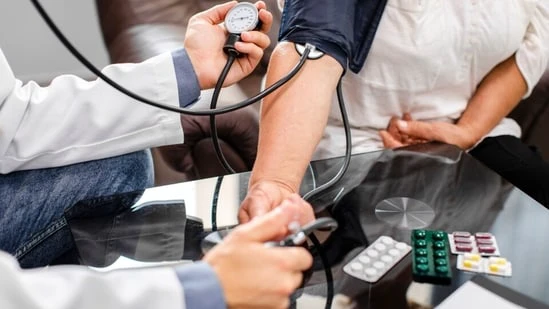Blood pressure medications are recommended for all adults with hypertension. According to a report shared by Million Hearts, one in five adults (25.0 million) with high blood pressure take some kind of medication.
Therefore, educating oneself about the same becomes essential.
Dr Evan Levine, a board-certified cardiologist working at Mount Sinai in Scarsdale, New York, highlighted the best time to take blood pressure medicines in an Instagram post shared on February 17. So, when is it best to take your blood pressure medications? Let’s find out:
The best time to take blood pressure medications
According to the cardiologist, observational trials have suggested for years that taking blood pressure medications at night could improve outcomes. However, a 2022 study called TIME (Treatment in Morning versus Evening) showed there’s no benefit to taking these drugs at night.
According to the cardiologist, this was a randomised prospective trial, and the study found that all the information from experts recommending nighttime dosing, based on observational trials, was incorrect. “So, it really doesn’t matter [when you take the medicines],” he pointed out.
So, when should you take blood pressure medicines?
What does Dr Levine tell his patients? Per the cardiologist, he suggests his patients ‘take it when it’s easiest and best for them to remember.’ He added. “Personally, I think it’s best to leave your medication on the sink; when you brush your teeth in the morning, you can take your medications.”
Dosage frequency
The cardiologist pointed out that another issue with blood pressure medicines is the frequency of dosing. He explained, “I dislike seeing people on medications that require three doses a day, especially elderly patients who are on one and a half tablets twice a day. This is ridiculous and absurd because it reduces compliance. Even going from one pill once a day to twice a day can reduce compliance by up to 14 percent.”
The cardiologist pointed out that if his patients have hypertension, “I try to prescribe a once-a-day medication that they can take at the same time and be done with it. It’s either one pill or the higher dose, not one and a half. I never do that. If you’re getting those pills like that and it confuses you, you should have a sit-down with your doctor or get a second opinion.”
Lastly, he criticised the American medication system and said, “If I can combine medications-put two or even three into one pill-I will. Only in the American system would you encounter a problem like the study showed: taking three medications in one pill.”
